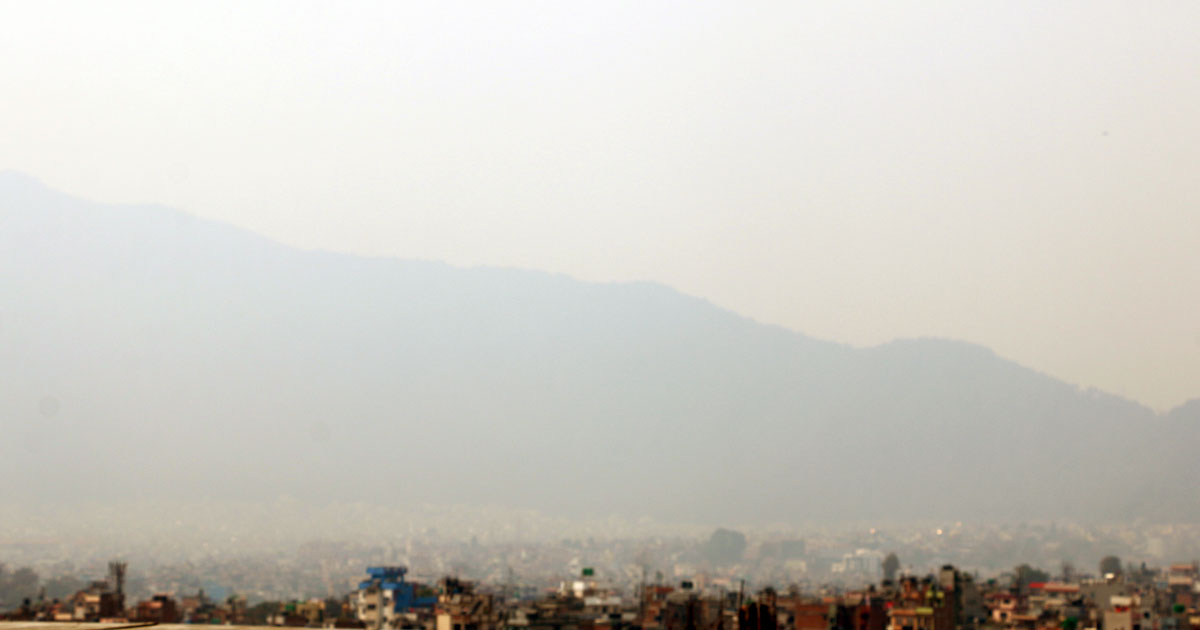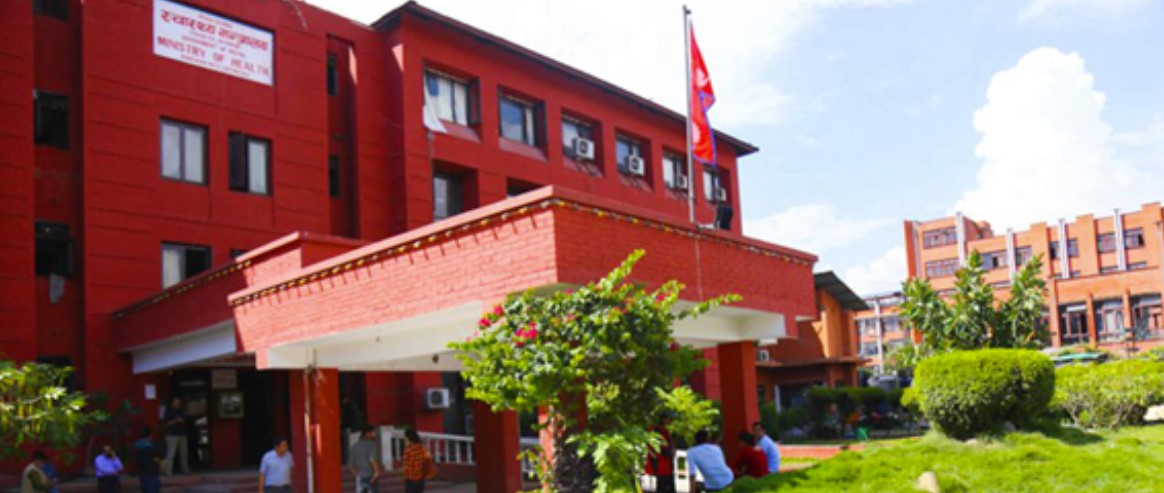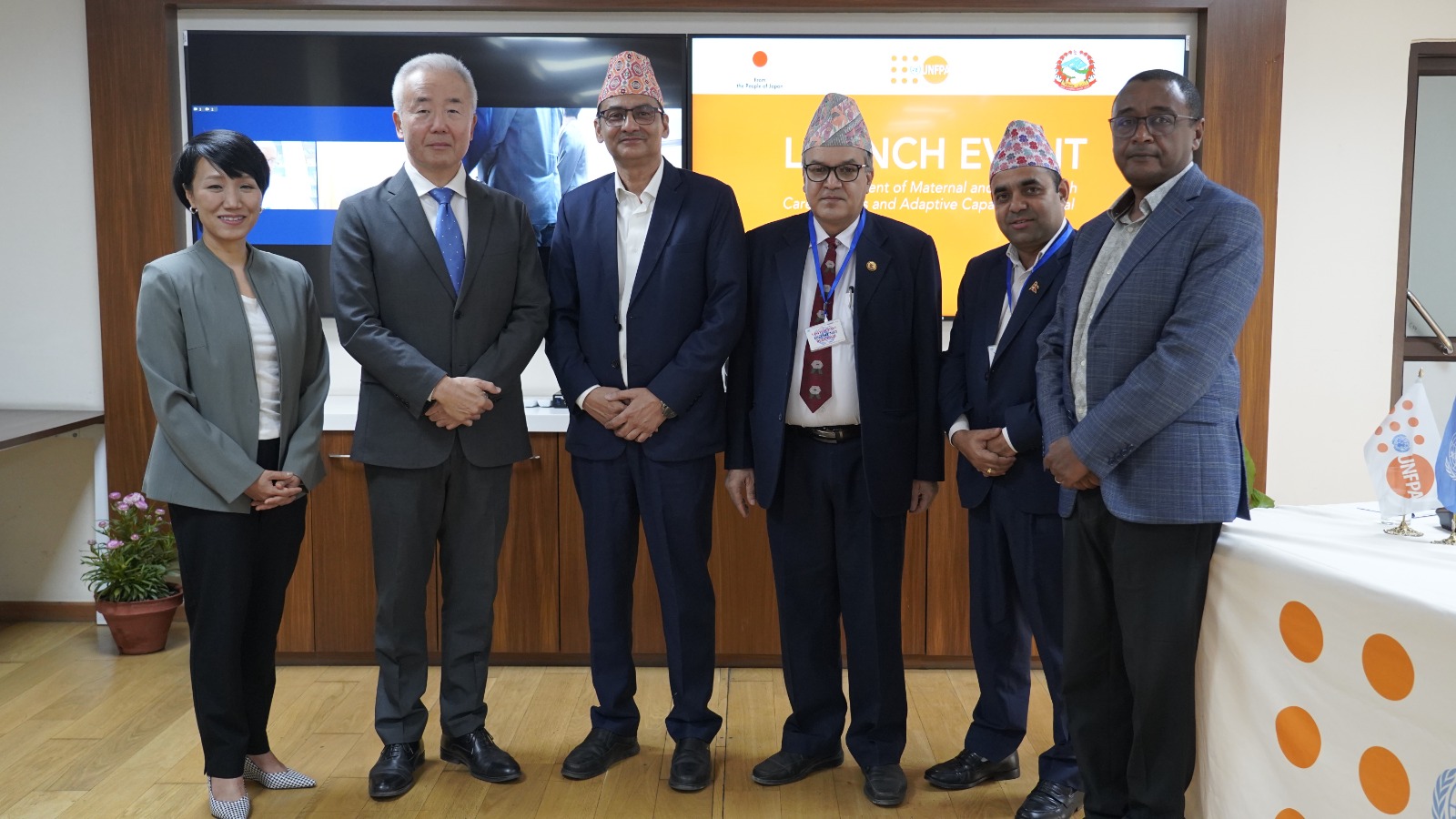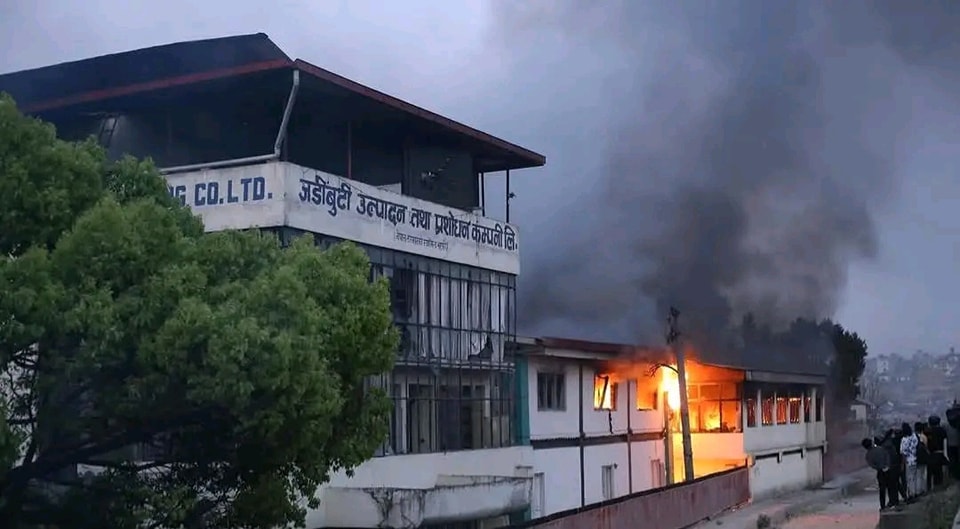
Nepal is one of the most vulnerable countries at high risk of climate change, facing extreme weather variations, rising temperatures, and irregular rainfall. These factors have significantly affected food security and increased public health crises. Climate-related diseases, malnutrition, and mental health issues are becoming more common. Despite having policies such as the National Climate Change Policy and the Climate Change Health Adaptation Strategy and Action Plan, progress in building climate-resilient health infrastructure remains limited.
The role of the health workforce is crucial in responding to climate challenges. However, in low- and middle-income countries, the preparedness of health workers to tackle climate-related health issues is often inadequate. To address this, Liverpool School of Tropical Medicine (UK), the Centre for Sexual Health and HIV/AIDS Research (Zimbabwe), and HERD International (Nepal) are conducting a study, ‘Strengthening the Health Workforce to Respond to Health Impacts of Climate Crisis in Nepal and Zimbabwe. ’ This study is funded by the National Institute for Health and Care Research (NIHR), UK.
The study aims to strengthen the capacity of health workers to effectively manage climate-related health impacts and provide quality healthcare. It is being conducted in Ghorahi Sub-Metropolitan City and Chandannath Municipality in Nepal, as well as Mount Darwin District and Harare Local Authority in Zimbabwe. The project duration is from 2025 to 2028.
Dr. Euphemia L. Sibanda, senior lecturer in global health and epidemiology and project director at CeSHHAR, Zimbabwe, recently visited Nepal to participate in partner meetings and stakeholder discussions for this project. She is also the principal investigator of this study.
A conversation with Romika Neupane:
Could you briefly share the key focus of this project, ‘Strengthening the Health Workforce to Respond to Health Impacts of the Climate Crisis in Nepal and Zimbabwe’?
I am really happy to talk about this. I am the co-leader of the program, and Dr. Joanna Raven is leading us. This project is very important to us because, based on both literature and real-life experiences, we know that climate change is having a significant impact globally. However, in Zimbabwe and Nepal, where our research is focused, there has been a lot of suffering and loss of life due to the climate crisis.
In Zimbabwe, for example, people have died due to cyclones, millions are suffering from drought, and we are experiencing erratic rainfall patterns affecting various populations. It is crucial to take action to support people through this crisis. We recognize that the health workforce plays a key role in responding to climate-related challenges.
Our research shows that health workers are not adequately equipped to deal with the climate crisis, even though they have the potential to drive positive responses. Strengthening their capacity is essential to improve healthcare responses to climate-related health challenges.
What are the main challenges Zimbabwe is facing currently?
There are various challenges, not just in Zimbabwe but in other similar contexts as well. As I mentioned earlier, the health workforce is not adequately prepared to support individuals affected by the climate crisis. Additionally, health facilities themselves can be impacted, highlighting the need for resilience in the healthcare system.
In Zimbabwe, the country is still in the early stages of mapping the relationship between climate change and health. Some guidelines and policies have been introduced by the Ministry of Environment, but they primarily focus on environmental aspects. Now, there is a need to integrate climate-related issues within the health sector, particularly through the Ministry of Health.
Through this project, we hope to engage relevant stakeholders in discussions about the challenges they are facing. As researchers, we do not claim to have all the answers. Through our research, we will engage with ministry officials and relevant stakeholders to identify the best ways to strengthen the resilience of the health workforce in responding to the climate crisis.
What differences and similarities have you observed between Nepal and Zimbabwe in terms of climate and health challenges?
I have only been in Nepal for a few days, but we have been collaborating with our Nepalese colleagues for over a year while developing this proposal.
Both countries face the challenges of climate change, and in both contexts, the resilience of health workers and communities in responding to climate-related crises is suboptimal. There is a shared urgency to find solutions to these challenges, making this research timely and relevant for both Nepal and Zimbabwe.
How does international collaboration enhance the capacity of health workers?
International collaboration is incredibly valuable. I am glad that co-development has been a key part of our research methodology. We have consulted widely beyond our research team to identify important priorities.
One key takeaway from yesterday’s meeting with stakeholders was that, in addition to the climate crisis, health systems face other challenges. Health workers are often under resourced, which needs to be considered alongside climate-related issues.
The strength of this project is that we are not arriving with predefined solutions. As researchers, we are working to understand the perspectives of communities, health workers, and leadership. This approach ensures that the interventions we propose will address broader challenges while focusing on climate resilience.
Apart from climate, how is Zimbabwe’s overall health system?
Zimbabwe’s healthcare system is based on a primary healthcare model designed to ensure that everyone in the community can access health services.
Primary health clinics are established in rural areas, making services accessible to many, though some people still have to walk long distances to reach them. The system follows a referral structure, moving from rural clinics to district hospitals, then to provincial hospitals, and finally to central hospitals.
The Ministry of Health oversees this structure, with different units managing various disease areas and levels of healthcare. While the system has been in place for years, low-income countries like Zimbabwe face challenges such as resource shortages, medication stock outs, and brain drain, as qualified health workers leave for better opportunities in neighboring or high-income countries. And, this is not a problem limited to Zimbabwe.
For primary healthcare services, the standard fee is five dollars, which includes consultation and medications. However, when shortages occur, people must turn to private services, which can be expensive. In general, the public health system is designed to cater to all members of the community, including the poor. However, challenges arise when services are unavailable, medicines run out of stock, and people are forced to seek care elsewhere, which can be expensive.
How has drought affected public health in Zimbabwe?
I would say drought has been quite difficult for Zimbabwe. Fortunately, we have received support from our government and international aid. The government has also introduced initiatives to support agriculture, such as providing inputs for farming. Helping families grow their own vegetables has been one way to mitigate hunger and malnutrition caused by drought.
What key policies or interventions are needed for a climate-resilient health system?
As researchers, we are not prescribing specific interventions. The key interventions will be identified based on our formative research and the most urgent priorities that emerge.
However, some potential interventions may include training health workers, empowering communities, and identifying better support mechanisms.
At last, Do you have anything to add?
Our goal is to work closely with communities and relevant stakeholders to identify the best interventions that should be prioritized.
I am truly excited about this project, and we are grateful to NIHR for funding this important work. One thing that humbles me is the enthusiasm and passion I have observed—both in Zimbabwe and Nepal—for tackling these challenges. It is promising to see that all relevant stakeholders are engaged and embracing the project. This is a good sign that we will develop meaningful, contextually relevant interventions.
Romika Neupane
Published: March 2, 2025








